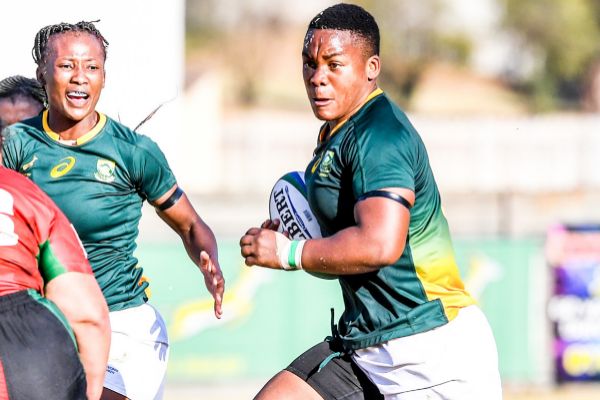A woman is murdered every three hours in South Africa, a country with more than 3,000 victims of these crimes throughout 2018. One of the few scenarios where Babalwa Latsha, captain of the Springboks, can forget at some point this terrifying statistic is a rugby field. "Nobody can attack you there. No man can point you with a gun, or hit you, or throw you a punch. We feel safe in the rectangle, but we should feel this way everywhere," says Latsha, 25, that last 21 September could not avoid defeat against Spain.
On 12-29 against Las Leonas in Despatch, on the outskirts of Port Elizabeth, he wounded in pride the players of Stanley Raubenheimer, who are still pursuing their pass for the New Zealand World Cup. The 2021 event is an additional challenge after the men's national team title in Japan.
"The success of the boys has ignited a flame in us," explains Latsha, a power prodigy, as he demonstrated in his essay during the aforementioned friendly against Spain. His relationship with rugby, however, was born just five years ago, when those responsible for a nationwide recruitment plan went to Khayelitsha, the Cape Town suburb where he was born and still lives.
"Sense of belonging"
At that moment, almost instantly, he "fell in love" with rugby. "It offered me a sense of belonging, of ownership and of power. It is the only place where I can be myself, without worrying about what they are going to think or say about me," adds this left pilier , of extraordinary power. In fact, his muscles have caused him as many problems as joy.
A lifetime answering questions about your gender. "People stare at me in the street and ask me why I have this image. You just have to develop a harder skin," says this law student, who has also shone in rugby at seven. "In society my body is an anomaly, but in the countryside it is wonderful," he emphasizes.
According to the World Health Organization (WHO), the figures in South Africa of murders of women in South Africa are five times the world average. That is why Latsha's example is so significant for the future of the country. Also for the immediate future of a selection with just three decades of history. Since 2004, the Boks have played three World Cups, with two wins and 13 losses.
According to the criteria of The Trust Project
Know more- sports
- rugby
Rugby World Cup All Japan dreams of the sequel to a miracle
Rugby World Championship New Zealand vs Ireland: Something more than just a quarter crossing in Tokyo
The transparency lessons that rugby provides to the VAR

